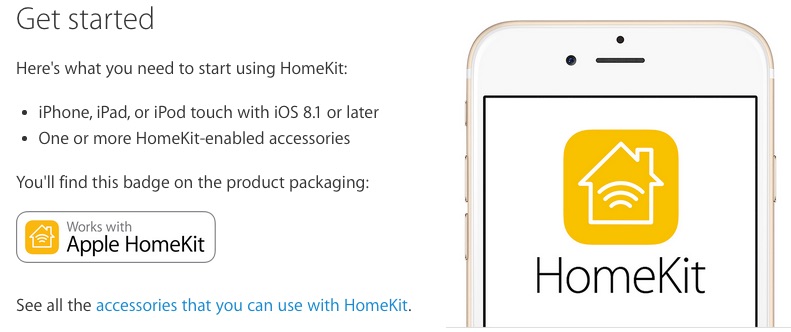It has been over a year since Apple launched HomeKit, its software framework for controlling thermostats, light bulbs, and other connected home accessories, yet so far only a few HomeKit-approved accessories have hit the shelves.

The slow rollout is reportedly due to Apple’s stringent security requirements for Bluetooth LE (low energy) devices. A report from Forbes says the strong level of encryption required to use the HomeKit protocol via Bluetooth LE has resulted in long lag times that basically render some accessories useless.
“Such lag times render many of these devices useless. For example, a smartlock that makes its user wait 40 seconds before it opens is clearly inferior to a traditional lock. One of HomeKit’s selling point is that it provides a more reliable user experience, so these kinds of lag times will need to be sorted out before Apple can become a major platform for the smart home.”
Apple requires device makers making either Wi-Fi or Bluetooth LE enabled devices to use encryption with 3072-bit keys, as well as the super secure Curve25519, which is an elliptic curve used for digital signatures and exchanging encrypted keys.
Wi-Fi-enabled devices have no problem with the requirements, but Bluetooth LE-enable devices are having issues. Forbes says the intensive processing demands for generating and sending the security keys are leading to the long lag times.
So far only Elgato has found a way to make Bluetooth LE work:
“For the time being, Elgato has found a workaround for these problems with Bluetooth LE. It’s tweaked the firmware and added additional on-chip memory to handle the heavy-duty encryption. Elgato was not anticipating having to go make these modifications initially, and now the company hopes to make a side business selling its tweaks to other device makers wanting to build HomeKit devices with Bluetooth LE.”
Sources also point to Apple’s “sparse and shifting” documentation, as well as the certification process for its “Made for iPhone” (MFi) certification program, which some companies say is tedious, with companies being required to send multiple prototypes to Apple for testing until the company is satisfied.
While the process for HomeKit certification, and the technical issues involved with high-security over Bluetooth LE is frustrating for manufacturers, Apple’s focus on security will benefit customers down the road.
“This is one of those things that Apple does,” said a Forbes source who is working on a HomeKit accessory. “… They force an issue. It’s like that here. Regular Bluetooth has an issue — it’s not secure.”


